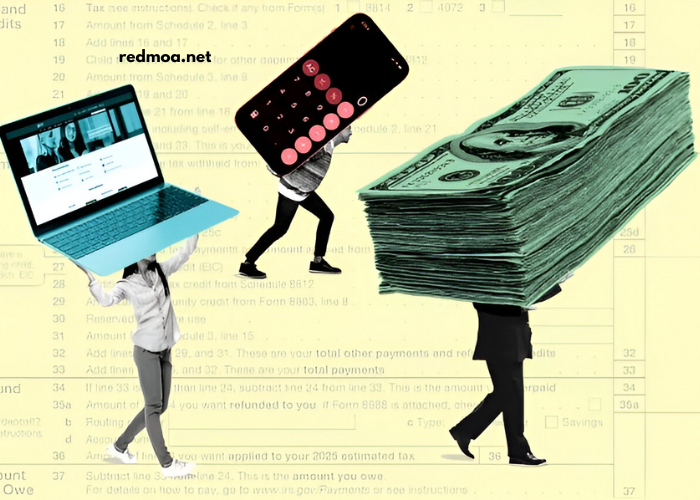In today’s rapidly shifting economic landscape, understanding personal finance has never been more important. With economic conditions continually evolving, from inflationary pressures to shifting interest rates and global financial disruptions, individuals need to equip themselves with knowledge and strategies to safeguard their financial futures. This article aims to provide a comprehensive understanding of personal finance within the context of an ever-changing economy.
The Importance of Personal Finance
Personal finance refers to the management of an individual’s financial activities, including budgeting, saving, investing, and planning for future goals. In a world where economic factors are constantly in flux, personal finance has become a crucial skill for individuals to maintain financial stability, achieve financial independence, and build wealth over time.
Whether you are just starting your career, approaching retirement, or looking to increase your financial literacy, understanding the principles of personal finance can significantly enhance your ability to navigate complex financial challenges.
The Impact of a Changing Economy on Personal Finance
The economy is in a constant state of flux, influenced by a myriad of factors such as government policy, global events, technological advancements, and consumer behavior. These changes can have profound implications on personal finance, affecting everything from employment opportunities and wage growth to interest rates and the cost of living.
Economic Fluctuations and Job Security
In a dynamic economy, job security can no longer be taken for granted. During periods of economic downturn, unemployment rates can rise, and many industries may face significant job cuts. On the other hand, during times of economic growth, new industries emerge, creating fresh employment opportunities. For individuals, adapting to these fluctuations is essential. Staying competitive in the job market through skill development and networking can provide a hedge against the uncertainty of job security.
Inflation and Cost of Living
One of the most immediate and noticeable effects of a changing economy is inflation—the rise in the cost of goods and services. Inflation can erode the purchasing power of your income, making everyday items more expensive. Understanding inflation and its potential impact on personal finances is key to managing long-term financial goals.
For example, if inflation is running at 3% annually, your purchasing power decreases by 3% each year, meaning the same amount of money buys less. As a result, it is crucial to adjust your budgeting strategies and focus on building wealth through investments that can outpace inflation, such as stocks, real estate, or other appreciating assets.
Interest Rates and Debt Management
Interest rates play a critical role in personal finance. Whether it’s the interest rate on your mortgage, credit card debt, or student loan, the rate you pay can significantly impact your financial well-being. In a changing economy, interest rates are often subject to fluctuations based on central bank policies, such as those implemented by the Federal Reserve in the United States or the European Central Bank in the Eurozone.
When interest rates are low, borrowing becomes cheaper, making it an ideal time to take on debt for big purchases such as homes or cars. However, if interest rates rise, the cost of borrowing increases, which can put pressure on individuals who carry debt.
Global Financial Disruptions and Personal Finance
In our interconnected world, global events can have a direct effect on personal finances. Natural disasters, geopolitical conflicts, and pandemics like COVID-19 are just a few examples of global disruptions that can cause widespread economic instability. During these times, personal finance strategies should include building an emergency fund, reducing discretionary spending, and preparing for potential income disruptions.
Key Principles of Personal Finance in a Changing Economy
Given the volatility of the current economic landscape, certain principles can help individuals build a solid financial foundation and prepare for uncertain times.
1. Budgeting: The Foundation of Financial Health
A well-constructed budget is one of the most powerful tools in personal finance. Budgeting involves tracking income and expenses, setting financial goals, and ensuring that spending aligns with your priorities. In a changing economy, it’s particularly important to regularly reassess your budget to adjust for fluctuations in your income or expenses.
There are various budgeting methods, such as the 50/30/20 rule, which suggests allocating 50% of your income to needs, 30% to wants, and 20% to savings and debt repayment. In times of economic uncertainty, you may want to shift more of your budget toward savings and debt reduction to improve your financial resilience.
2. Saving and Building an Emergency Fund
An emergency fund is a crucial element of any personal finance strategy. It provides a financial cushion that can cover unexpected expenses such as medical bills, home repairs, or job loss. In a changing economy, the importance of maintaining an emergency fund becomes even more apparent, as economic disruptions can lead to sudden financial hardships.
Financial experts typically recommend saving three to six months’ worth of living expenses in an emergency fund. However, depending on your personal circumstances and the state of the economy, you may choose to save more.
3. Debt Management: Controlling Liabilities
Managing debt is another essential component of personal finance. Excessive debt can quickly spiral out of control, especially in a high-interest environment. A key to managing debt in a changing economy is understanding your liabilities and taking proactive steps to reduce them. This includes paying off high-interest debt as quickly as possible, avoiding unnecessary borrowing, and being mindful of how future interest rate changes could impact your debt load.
For instance, if you have credit card debt with a high interest rate, prioritizing its repayment can free up more money for savings and investments, helping you secure long-term financial stability.
4. Investing for Long-Term Growth
In times of economic uncertainty, many people may become risk-averse, preferring to hold onto cash rather than invest. However, investing is essential for building wealth over time. While the stock market may experience short-term volatility, historically, it has provided long-term growth that outpaces inflation. Other investment vehicles such as bonds, mutual funds, real estate, or even starting a business can also serve as long-term growth strategies.
It is important to diversify your investments to mitigate risk, ensuring that no single economic event can cause significant harm to your overall portfolio. Financial advisors recommend investing based on your risk tolerance, financial goals, and time horizon.
5. Retirement Planning: Preparing for the Future
Retirement may seem far away, but in a rapidly changing economy, it’s crucial to plan early. A successful retirement plan relies on consistent saving, investing, and adjusting for factors like inflation, healthcare costs, and changing income needs. In the face of an evolving economy, you should regularly review and adjust your retirement strategy.
In addition to employer-sponsored retirement plans like 401(k)s or pension plans, individuals can explore individual retirement accounts (IRAs) or other investment options to ensure that their savings grow effectively over time. Ensuring that you have multiple streams of retirement income, such as Social Security benefits, pensions, or personal investments, can help protect against economic uncertainty during retirement.
6. Financial Literacy: Continuously Educating Yourself
The financial landscape is continuously evolving, so staying informed is crucial. Financial literacy involves understanding key concepts like budgeting, saving, investing, taxes, and insurance. By improving your financial literacy, you can make smarter decisions regarding your money and adapt more easily to changes in the economy.
Numerous resources are available to enhance your financial knowledge, from online courses and blogs to financial books and podcasts. Financial advisors can also offer personalized advice based on your unique situation.
Preparing for Future Economic Changes
Though no one can predict the future of the economy with certainty, there are steps individuals can take to prepare for potential changes. Building an adaptable financial strategy will help you weather the storms of economic shifts and seize opportunities as they arise.
1. Stay Informed on Economic Trends
Keep track of economic indicators such as GDP growth, inflation rates, unemployment rates, and central bank policies. These indicators provide valuable insights into the direction of the economy and can help you anticipate potential shifts in the financial landscape.
2. Diversify Income Sources
Relying on a single income stream can be risky in a volatile economy. Exploring side gigs, passive income opportunities, or investment income can provide financial security and help mitigate risks associated with job loss or economic downturns.
3. Focus on Long-Term Financial Goals
While it’s easy to get distracted by short-term economic fluctuations, maintaining a focus on long-term financial goals is essential. Having a clear vision of your financial future can help you stay motivated and make decisions that align with your ultimate objectives.
4. Be Ready to Adapt
The key to thriving in a changing economy is adaptability. Be prepared to adjust your financial strategies as necessary, whether that means revising your budget, revisiting your investment portfolio, or exploring new ways to generate income.
Conclusion
In a rapidly changing economy, personal finance is more than just a way to manage money—it’s a tool for navigating uncertainty and building long-term wealth. By mastering the key principles of budgeting, saving, investing, and retirement planning, individuals can protect themselves from the potential risks associated with economic shifts and take advantage of the opportunities that arise. With a focus on financial literacy, adaptability, and resilience, you can take control of your financial future, no matter what changes the economy may bring.





